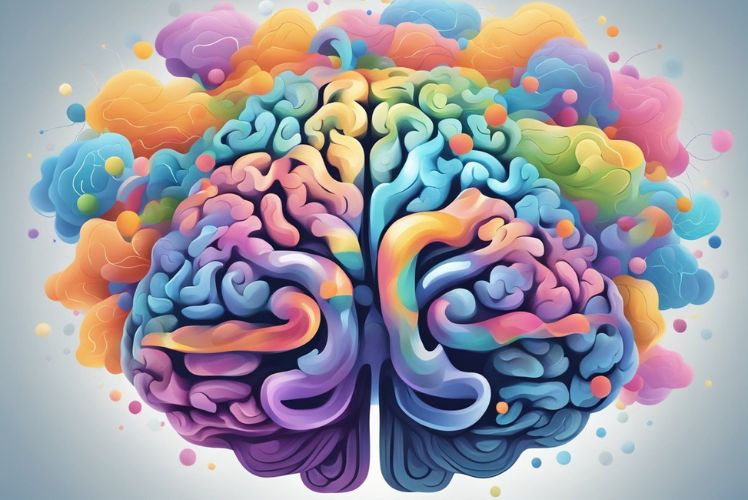Emotional intelligence plays a crucial role in our daily lives, shaping our interactions and decisions. By understanding and developing our emotional intelligence, we can improve our relationships and achieve greater success in both personal and professional settings. This skill allows us to recognise our own emotions and those of others, leading to more effective communication and empathy.

In this blog post, we will explore the science behind emotional intelligence, including its components and how it influences our behaviour. We will also provide practical strategies for cultivating emotional intelligence in our lives. By enhancing this ability, we can navigate our emotions more effectively and strengthen our connections with those around us.
Join us as we delve into the fascinating world of emotional intelligence and uncover ways to foster this essential skill. Understanding the science behind it is the first step towards mastering emotional intelligence and improving our overall well-being.
Understanding Emotional Intelligence

Emotional intelligence (EI) is a vital skill set that allows us to recognise and manage our emotions, as well as those of others. This section breaks down what emotional intelligence means, its main components, and the various theories and models that explain its significance.
Defining Emotional Intelligence
Emotional intelligence, often called emotional quotient (EQ), is the ability to identify, understand, and process emotions. It involves being aware of our own feelings and understanding how they influence our actions. Furthermore, it encompasses recognising emotions in others, helping us interact effectively. High emotional intelligence leads to improved communication, better relationships, and greater empathy.
Components of Emotional Intelligence
Emotional intelligence consists of several key components:
-
Emotional Self-Awareness: This is the ability to recognise our own emotions and their effect on our thoughts and behaviour. Self-awareness is the foundation for developing EI.
-
Self-Regulation: This involves controlling our emotions and impulses. It helps us respond appropriately in various situations, promoting better decision-making.
-
Empathy: The ability to understand and share the feelings of others is crucial. Empathy allows us to relate to others more deeply, building stronger relationships.
-
Social Skills: These skills facilitate effective communication and relationship management. They help us navigate social complexities.
-
Motivation: A passion for work that goes beyond money and status drives us to achieve our goals.
Theories and Models of EI
Several theories and models help explain emotional intelligence. One well-known model is Daniel Goleman's framework, which outlines the five components mentioned above. Goleman emphasises the role of emotional intelligence in leadership and personal success.
Another important model is the ability model by Mayer and Salovey. This model categorises emotional intelligence as a set of skills that we can develop, which includes perceiving emotions, using emotions to facilitate thought, understanding emotions, and managing emotions.
Both theories highlight that emotional intelligence is essential for personal and professional growth. Through understanding these models, we can see how cultivating our EI can enhance our lives.
Developing Self-Awareness and Self-Regulation

Self-awareness and self-regulation are crucial for improving our emotional intelligence. Understanding our emotions helps us manage them better, leading to healthier interactions and decisions. Here, we explore how to recognise our emotional responses and utilise techniques for better self-management.
Recognising Emotional Responses
To improve self-awareness, we must first recognise our emotional responses. This involves paying attention to our feelings in different situations. Keeping a journal can help us track these emotions over time.
We can ask ourselves questions like:
- What triggered this emotion?
- How did I react?
- How did that reaction affect my situation?
By reflecting on these questions, we develop emotional clarity. This clarity helps us to understand our emotional triggers better, allowing us to respond instead of react impulsively.
Practising mindfulness can also enhance our awareness. Techniques such as deep breathing or focused meditation allow us to pause and assess our feelings before acting.
Techniques for Self-Management
After recognising our emotions, we can apply techniques for better self-management. Self-regulation is about controlling our emotional responses and reactions.
Setting personal boundaries is key. We should learn to say no when necessary to protect our mental space.
Here are a few self-management techniques we can employ:
- Practice Self-Care: Regular exercise, healthy eating, and sufficient sleep are essential for managing stress.
- Stress Management Strategies: Engaging in activities we enjoy, such as hobbies or spending time with friends, can help reduce stress levels.
- Develop Coping Skills: Techniques like journaling or talking to someone we trust can provide relief and clarity during emotional upheavals.
By consistently applying these techniques, we can enhance our self-regulation, leading to healthier emotional responses and relationships.
Building Social Competencies

To effectively navigate our social environments, we must enhance our empathy and social skills, alongside mastering communication and relationship management. These competencies are essential for developing strong connections and understanding others in various situations.
Improving Empathy and Social Skills
Empathy is key to forming meaningful relationships. It allows us to understand and share the feelings of others. To improve our empathy, we can practise active listening. This means giving our full attention and reflecting back what we hear.
We can also engage in diverse social experiences. Joining clubs or community groups exposes us to different perspectives. Additionally, we should focus on observing non-verbal cues, such as body language and facial expressions. These cues provide valuable insights into how others feel.
Social skills depend on our interactions and relationships. Building these skills enhances our social intelligence, which is vital for networking and teamwork. We should strive to connect with others genuinely, helping create a supportive social network.
Effective Communication and Relationship Management
Clear communication is crucial in any relationship. We should express our thoughts and feelings openly while also considering the feelings of others. This balance can prevent misunderstandings and foster trust.
Using "I" statements can improve our communication. For example, we might say, "I feel overwhelmed when meetings are unstructured." This approach shows our emotions without placing blame.
Effective relationship management requires us to resolve conflicts calmly. When disagreements arise, we should aim for a solution that satisfies all parties involved. Regularly checking in with our relationships helps maintain and strengthen them.
Practising these skills contributes to our overall emotional intelligence and enriches our interactions. Engaging with others and building rapport allows us to thrive both personally and professionally.
Applying Emotional Intelligence to Achieve Goals

Emotional intelligence plays a crucial role in setting and reaching our goals. It enhances our ability to understand emotions, make informed decisions, and improve our performance in various aspects of life. Below, we explore how we can apply emotional intelligence to both personal and professional goal achievement.
Setting and Managing Personal Goals
When we set personal goals, emotional intelligence helps us identify what truly matters to us. By practising emotional self-awareness, we can recognise our feelings and how they influence our choices.
To effectively manage our goals, we should:
- Set clear, achievable goals. Using the SMART criteria (Specific, Measurable, Achievable, Relevant, Time-bound) can guide our goal-setting process.
- Monitor progress regularly. This allows us to stay connected to our emotions and stay motivated.
- Adjust goals if needed. Flexibility can keep us on track, especially when obstacles arise.
By applying emotional intelligence, we can enhance our self-management skills and make better decisions throughout our journey.
Emotional Intelligence in Professional Life
In the workplace, emotional intelligence is vital for professional success. It influences how we lead, collaborate, and solve problems. Our ability to manage emotions helps us in various ways:
- Improving decision-making. Recognising our feelings allows us to weigh options more effectively.
- Boosting team performance. Understanding team dynamics helps us provide constructive feedback and support.
- Enhancing patient care. In health professions, empathy and self-regulation are essential for better outcomes.
By cultivating emotional intelligence, we empower ourselves and our colleagues, leading to improved job performance and a more harmonious work environment.
Practical Exercises for Enhancing EI
To improve our emotional intelligence (EI), we can engage in several practical exercises that promote self-awareness and emotional regulation. Activities such as music and art, physical exercise, and reflective writing can help us manage our emotions and develop adaptability.
Cultivating Emotional Intelligence Through Music and Art
Engaging with music and art can significantly boost our emotional clarity. We can listen to different genres of music that resonate with our feelings or explore creating art to express emotions visually. Creating playlists for various moods helps us identify our emotional state.
Benefits of Music and Art:
- Emotional Expression: Helps release feelings.
- Self-Reflection: Encourages us to think about our emotional experiences.
- Stress Relief: Listening to calming music can reduce anxiety.
By combining creativity with emotional awareness, we better understand and manage our emotions.
Physical Exercise and Emotional Regulation
Regular physical exercise plays a crucial role in improving our emotional health. Activities like running, yoga, or team sports help to reduce stress and regulate emotions. Exercise releases endorphins, which can elevate our mood and enhance our overall resilience.
Key Activities:
- Running or Cycling: Great for clearing the mind.
- Yoga: Focuses on breathing and mindfulness.
- Team Sports: Promotes teamwork and empathy towards others.
Incorporating exercise into our routine fosters adaptability, making us better equipped to handle emotional challenges.
Reflective Writing and Emotional Insights
Reflective writing is an effective tool for enhancing emotional intelligence. By journaling our thoughts and feelings, we gain deeper insights into our emotions. We can write about daily experiences, focusing on how we felt and how we reacted.
Tips for Reflective Writing:
- Set a Regular Time: Write daily or weekly to establish a habit.
- Be Honest: Express true emotions without judgement.
- Ask Questions: What made me feel this way? How did I manage my feelings?
This practice not only heightens our self-awareness but also improves our ability to manage emotions in various situations.





















